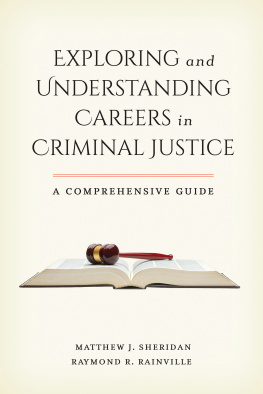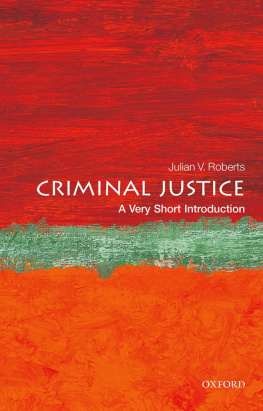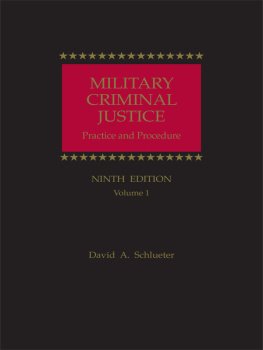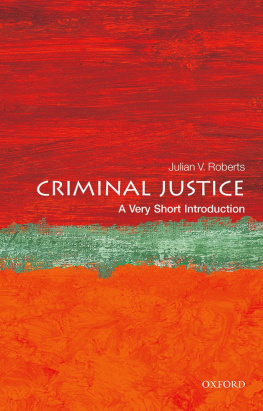OMalley - The short guide to criminal justice
Here you can read online OMalley - The short guide to criminal justice full text of the book (entire story) in english for free. Download pdf and epub, get meaning, cover and reviews about this ebook. year: 2018, publisher: Policy Press, genre: Politics. Description of the work, (preface) as well as reviews are available. Best literature library LitArk.com created for fans of good reading and offers a wide selection of genres:
Romance novel
Science fiction
Adventure
Detective
Science
History
Home and family
Prose
Art
Politics
Computer
Non-fiction
Religion
Business
Children
Humor
Choose a favorite category and find really read worthwhile books. Enjoy immersion in the world of imagination, feel the emotions of the characters or learn something new for yourself, make an fascinating discovery.

The short guide to criminal justice: summary, description and annotation
We offer to read an annotation, description, summary or preface (depends on what the author of the book "The short guide to criminal justice" wrote himself). If you haven't found the necessary information about the book — write in the comments, we will try to find it.
OMalley: author's other books
Who wrote The short guide to criminal justice? Find out the surname, the name of the author of the book and a list of all author's works by series.
The short guide to criminal justice — read online for free the complete book (whole text) full work
Below is the text of the book, divided by pages. System saving the place of the last page read, allows you to conveniently read the book "The short guide to criminal justice" online for free, without having to search again every time where you left off. Put a bookmark, and you can go to the page where you finished reading at any time.
Font size:
Interval:
Bookmark:


Policy Press 2018
A catalogue record for this book is available from the British Library.
A catalog record for this book has been requested.
ISBN 978-1-4473-3095-0 ePub
ISBN 978-1-4473-3096-7 Mobi
ISBN 978-1-4473-3097-4 ePdf
Front cover image: istock
Readers Guide
This book has been optimised for PDA.
Tables may have been presented to accommodate this devices limitations.
Image presentation is limited by this devices limitations.
Tables |
Figures |
AGO | Attorney Generals Office |
BAME | Black and minority ethnic |
CCRC | Criminal Cases Review Commission |
CJJI | Criminal Justice Joint Inspectorate |
CPS | Crown Prosecution Service |
CRC | Community rehabilitation company |
DPP | Director of Public Prosecutions |
HMCTS | Her Majestys Courts and Tribunals Service |
HMIC | Her Majestys Inspectorate of Constabulary, (HMICFRS since July 2017) |
HMICFRS | Her Majestys Inspectorate of Constabulary and Fire & Rescue Services |
HMI Prisons | Her Majestys Inspectorate of Prisons for England and Wales |
HMI Probation | Her Majestys Inspectorate of Probation |
HMPPS | Her Majestys Prison and Probation Service |
IPCC | Independent Police Complaints Commission |
JAC | Judicial Appointments Commission |
MAPPA | Multi-agency public protection arrangements |
MOJ | Ministry of Justice |
MPS | Metropolitan Police Service |
NOMS | National Offender Management Service |
NPS | National Probation Service |
PACE | Police and Criminal Evidence Act 1984 |
PCSO | Police community support officer |
PQiP | Professional Qualification in Probation |
SCS | Statutory Charging Scheme |
Font size:
Interval:
Bookmark:
Similar books «The short guide to criminal justice»
Look at similar books to The short guide to criminal justice. We have selected literature similar in name and meaning in the hope of providing readers with more options to find new, interesting, not yet read works.
Discussion, reviews of the book The short guide to criminal justice and just readers' own opinions. Leave your comments, write what you think about the work, its meaning or the main characters. Specify what exactly you liked and what you didn't like, and why you think so.









